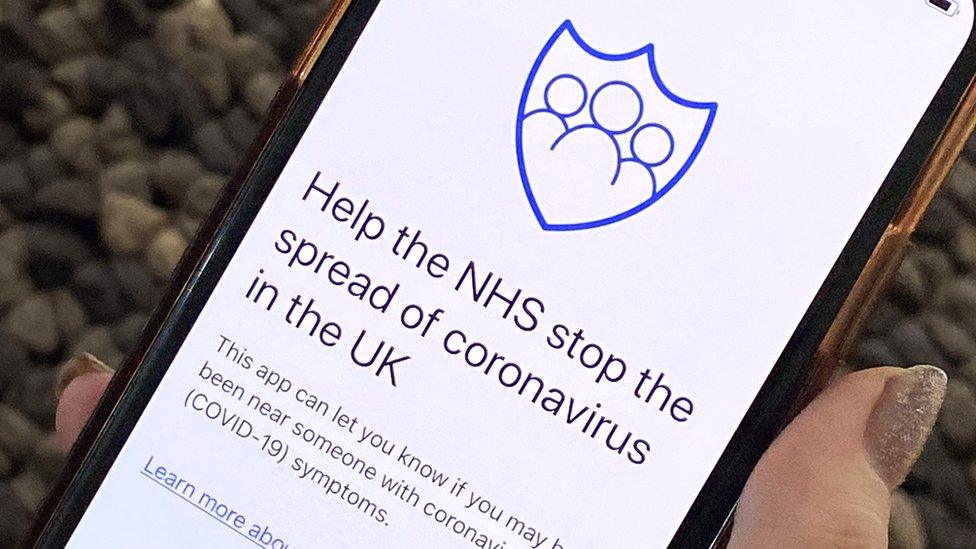Coronavirus: Key workers to trial NHS tracing app
- Published
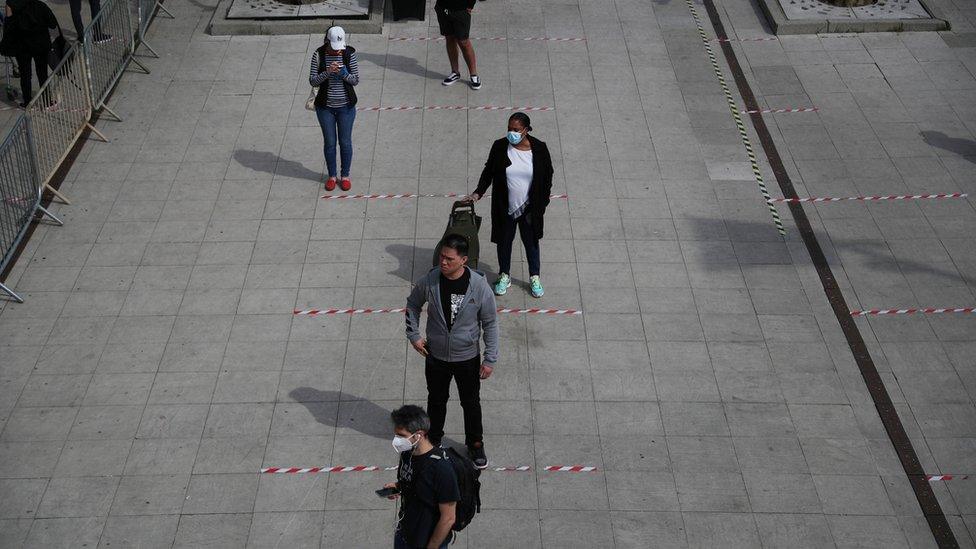
Social distancing rules will still be in place during the trial, Health Secretary Matt Hancock said
An NHS app that aims to track the spread of coronavirus is being rolled out for the first time, as part of a trial on the Isle of Wight.
Council and healthcare workers will be the first to try the contact-tracing app, with the rest of the island able to download it from Thursday.
If the trial is successful, it could be available nationwide within weeks.
Concerns have been raised over privacy, though ministers say the app has been designed with this "front of mind".
The app aims to quickly trace recent contacts of anyone who tests positive for the virus.
It is part of the government's strategy for coming out of lockdown, which aims to have widespread testing and contact tracing in place to monitor and reduce any future outbreaks.
If the trial is successful, the app will be rolled out nationwide by the middle of May, Health Secretary Matt Hancock said.

Meanwhile, Labour leader Sir Keir Starmer has called for a "national consensus" on tackling the virus when the UK begins to move out of lockdown.
It comes as the the number of coronavirus-related deaths in the UK reached 28,734, an increase of 288.
The daily increase in deaths is lower than at any point since the end of March, but the figures reported at the weekend tend to be lower and are expected to rise, Mr Hancock said.

How does the app work?
The new app - published on Apple and Google's app stores - works by using a Bluetooth connection.
It records when two people who have the app are within a certain distance of each other for longer than a specified amount of time.
If one of those people later reports having symptoms, all the other app users they came into significant contact with over recent days will be alerted and, if judged necessary, told to self-isolate.
"The exact advice on what you should do will depend on the evolving context and approach," the NHS has said.



Mr Hancock urged everyone on the Isle of Wight to download the app when it was available to them. Social distancing rules would still be in place during the trial, he said.
"By downloading the app, you are protecting your own health, you are protecting the health of your loved ones and the health of your community," he said.
"Where the Isle of Wight goes, Britain follows."
The island was chosen for the trial because it has a lower number of new infections, is covered by a single NHS trust and because travel to and from the island is quite restricted.
Mr Hancock told BBC Breakfast the app would be an "incredibly important part" of the fight against the virus and the more people who downloaded it, the more lockdown restrictions could be eased.
Matt Hancock said Isle of Wight residents using the app "will be saving lives"
Sir Keir said he hoped the app would be successful but questioned whether take-up would be high enough.
"I am a bit concerned that a similar app in Singapore only had, I think, something like a 20% take-up rate in the public," he told BBC Radio 4's Today programme.
The Labour leader added that traditional methods of tracing, for example phoning people, would have to be used alongside the technology.

A SIMPLE GUIDE: How do I protect myself?
AVOIDING CONTACT: The rules on self-isolation and exercise
PUBLIC TRANSPORT: Is it safe to travel?

The "centralised" model of the app - meaning there is a central computer server which works out which phones have matched - has raised some privacy concerns.
This is different to the "decentralised" model used by Apple and Google, where the matches take place on users' handsets.
Some have argued a "centralised" approach gives the app advantages, for example by making it easier to spot hotspots where the disease is spreading. But others say a central system increases the risk from potential hackers.
Law professor Orla Lynskey said the option on the app for users to opt in and share their location data "poses a big risk".
But NHSX - the part of the health service that developed the app - said the app will be voluntary, and the only personal data stored by the app at the start would be the first part of the user's postcode.
Additional location data will only be recorded if users agree to a further opt-in request, NHSX added.
Mr Hancock said the software was "designed with privacy and security front of mind". He said the data was stored on the phone and only sent to the NHS when someone needs a test.
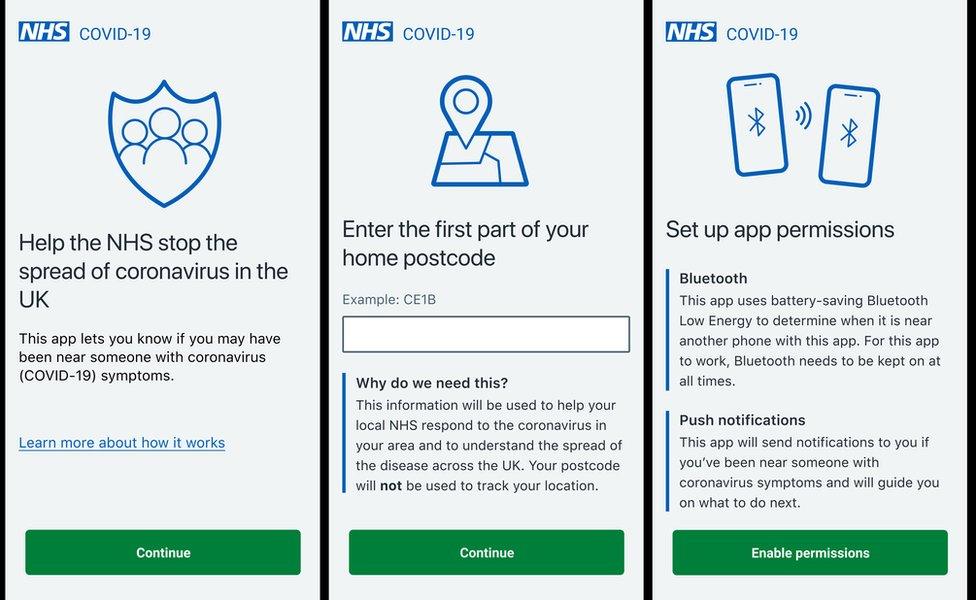
Users will be asked to enter the first part of their postcode but not their name or other personal details
The UK's "test, track and trace" strategy has seen testing be scaled up over the last month, following Mr Hancock's pledge to reach 100,000 tests by the end of April. The UK passed the target, providing more than 122,000 tests on the last day of April. Latest figures show, external there were 85,186 tests on Sunday.
Meanwhile, the Scientific Advisory Group for Emergencies (Sage), which has been advising the government on the pandemic, has published some of the evidence which informed its guidance, external.
The documents cover the group's meetings up to 14 April.
Among the papers published by Sage is one from a meeting on 2 April, which suggests lockdown restrictions should be eased "very gradually" to avoid measures needing to be reintroduced, which could undermine public trust.
In other developments:
Trade unions have warned draft government guidelines for getting people back to work could compromise employees' safety
Mr Hancock said the issue of maintaining social distancing on flights was a "really difficult question" and safety "has got to come first". His comments came after photos of an Aer Lingus flight showed passengers sitting close together, with most seats occupied
A group of Tory MPs are calling for restrictions around funerals to be eased, to allow small-scale ceremonies in churches rather than just at the graveside or crematorium
The government is now paying the wages for nearly a quarter of UK jobs, under the furlough scheme that helps people put on leave due to the pandemic
Doctors working for Premier League football clubs have raised concerns over plans to resume the football season
Thousands of nurseries and childminders could shut permanently due to the pandemic, research suggests.

How have you been affected by coronavirus? Are you taking part in the trial of the contact tracing app? You can share your experience by emailing haveyoursay@bbc.co.uk, external.
Please include a contact number if you are willing to speak to a BBC journalist.
WhatsApp: +44 7756 165803
Tweet: @BBC_HaveYourSay, external
Send pictures/video to yourpics@bbc.co.uk, external
Please read our terms & conditions and privacy policy
- Published5 August 2021
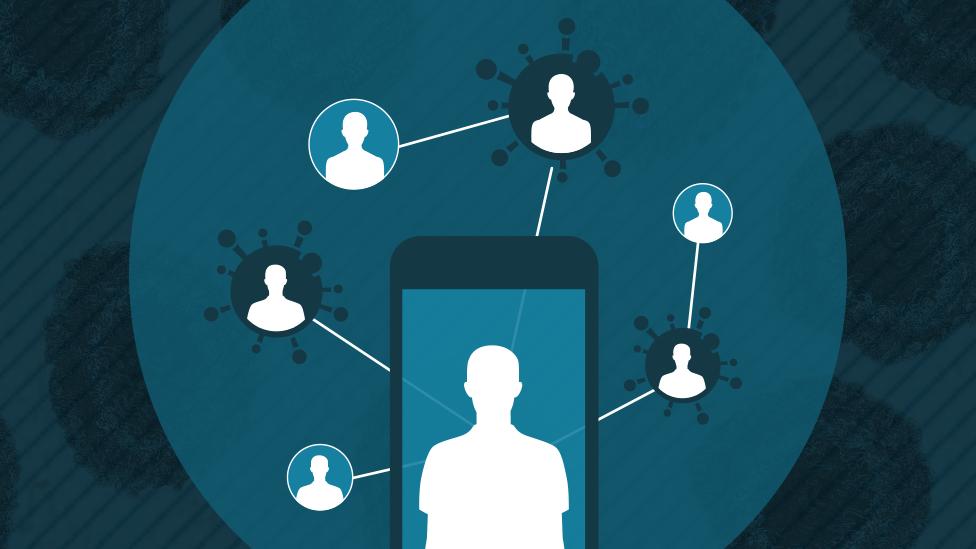
- Published14 May 2020
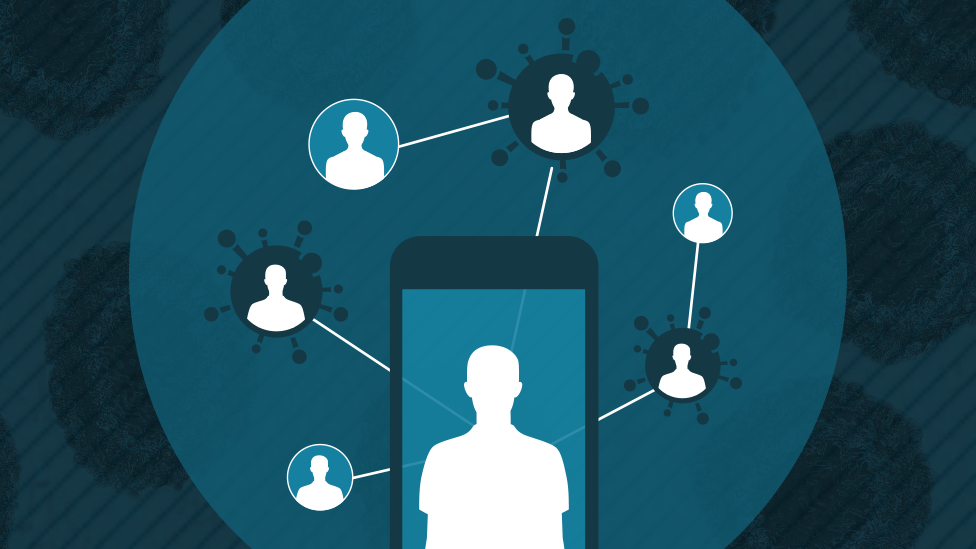
- Published4 May 2020
